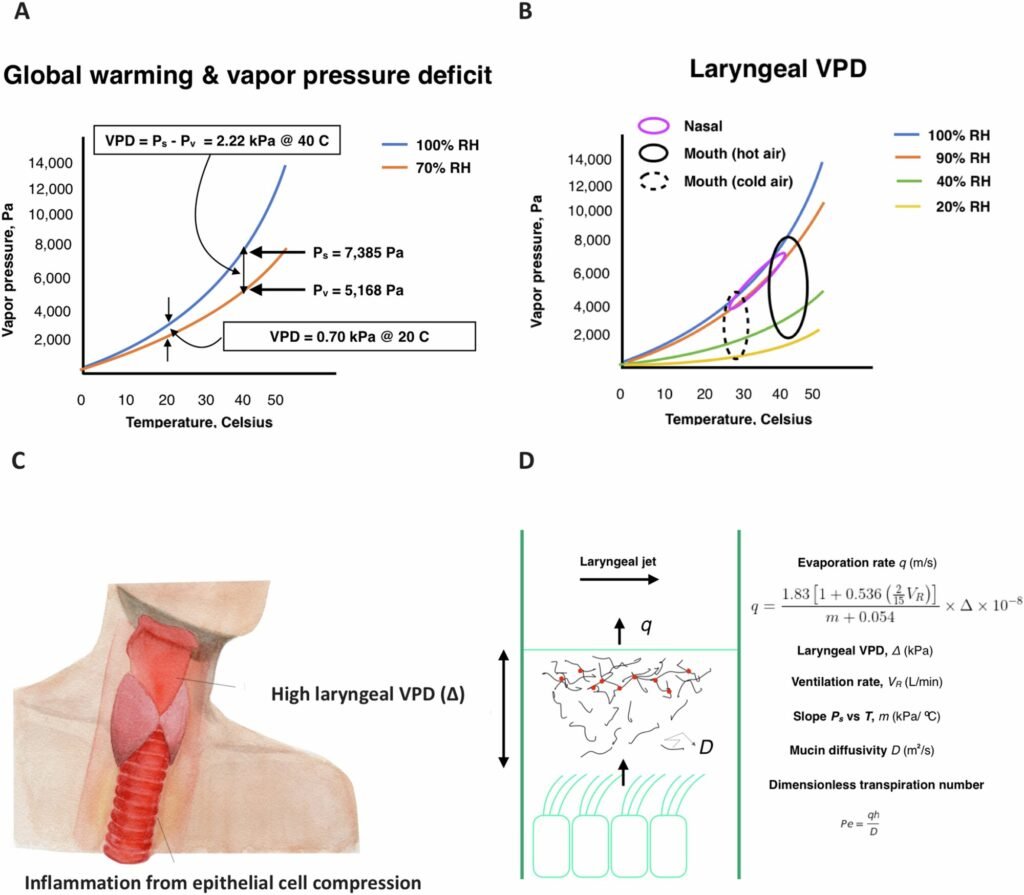Global warming is a pressing issue that affects not only the environment but also human health. A recent study has shed light on how global warming can lead to inflammation in human airways, posing a significant risk to respiratory health. Researchers have found that healthy human airways are more prone to dehydration and inflammation when exposed to dry air, a phenomenon that is expected to become more prevalent due to the effects of global warming.
The study, published in Communications Earth & Environment, highlights the concept of vapor pressure deficit (VPD) as a key factor in airway dehydration and inflammation. VPD measures the “thirstiness” of the air for water, and as the Earth’s atmosphere heats up, VPD increases rapidly. This leads to higher rates of water evaporation, dehydrating planetary ecosystems and posing a risk to human respiratory health.
Lead author David Edwards, from the Johns Hopkins University School of Medicine, emphasizes the importance of managing airway hydration as a critical aspect of air quality. The study reveals that exposure to dry air can lead to mucus thinning in the upper airways, triggering inflammatory and immune responses in the body. This dehydration and inflammation can be exacerbated by factors such as mouth breathing and increased exposure to air-conditioned and heated indoor air.
The research also delves into the impact of airway dehydration on other physiological mechanisms in the body, such as dry eye and water movement in mucus linings in the eye. The findings suggest that human mucosa dehydration is a growing threat to human health, exacerbated by global warming trends.
In animal models, the researchers confirmed that intermittent exposure to dry air can aggravate lung pathology, particularly in mice with preexisting airway dryness. Climate model studies conducted by the team predict that a large portion of America will be at an elevated risk of airway inflammation by the latter half of the century, highlighting the urgent need for action to address these issues.
The study concludes by stressing the importance of understanding how airways dehydrate in dry air environments to prevent or reverse the inflammatory impact of dehydration. Effective behavioral changes and interventions are needed to mitigate the risks posed by airway dehydration and inflammation.
The collaborative effort involved in this research, including experts from institutions such as Boston University, Imperial College London, and the University of North Carolina, underscores the interdisciplinary nature of addressing the health impacts of global warming. The findings of this study have far-reaching implications for respiratory health and underscore the urgent need for proactive measures to protect human airways in the face of climate change.


